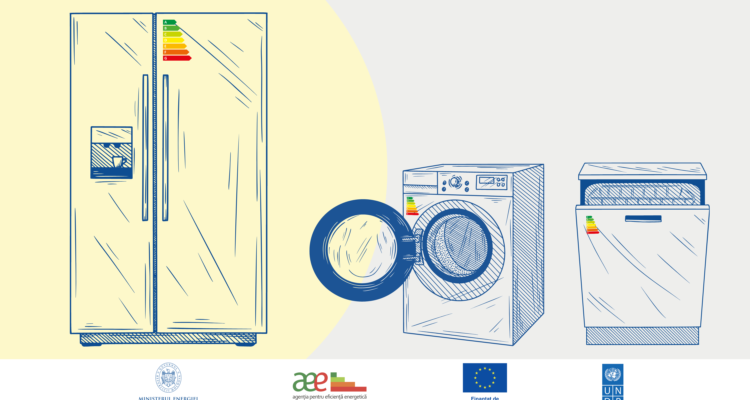Household appliances will have energy labels, on a scale from A to G, A being the most energy efficient. The new labels will contain more information about the products, such as annual energy consumption, noise level, and the included QR code will provide access to additional product information.
Inspectors and civil servants were trained on the rules for placing energy products on the market and how to verify their compliance, with the support of the “Addressing the impacts of the energy crisis in the Republic of Moldova” programme, financed by the European Union and implemented by UNDP Moldova.
The European Union (EU) directives regarding the ecological design of products with an energy impact, as well as the labeling of products placed on the market, were transposed in 2014 into the legislation of the Republic of Moldova. In the near future, they will be updated to take into account the new European regulations. The Ecodesign Directive stimulates the market by banning the least efficient products, while the Energy Labeling Directive encourages consumers to buy more energy efficient products by informing them of their energy consumption via a label.
“Through the regulations related to ecological design and energy labeling, product quality is conditioned and the competitiveness of these industries is stimulated. Technologies that do not meet the performance criteria have left the market, making way for more efficient products. For the Republic of Moldova, these regulations are important because they will allow the reduction of energy consumption in the residential sector, responsible for about half of the final energy consumption”, said Carolina Novac, Secretary of State at the Ministry of Energy.
At the same time, these regulations will contribute to achieving the goal of decarbonization of the economy of the Republic of Moldova by 2050.
With a budget of €10 million allocated by the European Union, the “Addressing the impacts of the energy crisis in the Republic of Moldova” programme, implemented by UNDP, supported the creation of the compensatii.gov.md platform and will launch a campaign to replace old household appliances with new energy efficient ones. The programme finances the installation of photovoltaic panels in households and a few hospitals, as well as the change of central heating systems in several blocks to much more efficient horizontal distribution systems.
In addition, the programme provides support for the transposition of the EU’s Third Energy Package into both primary and secondary legislation, as well as the transposition of a number of Directives and Regulations of the Clean Energy for All Europeans package, which address the performance energy efficiency of buildings, renewable energy sources, energy efficiency, good governance and electricity market design.
